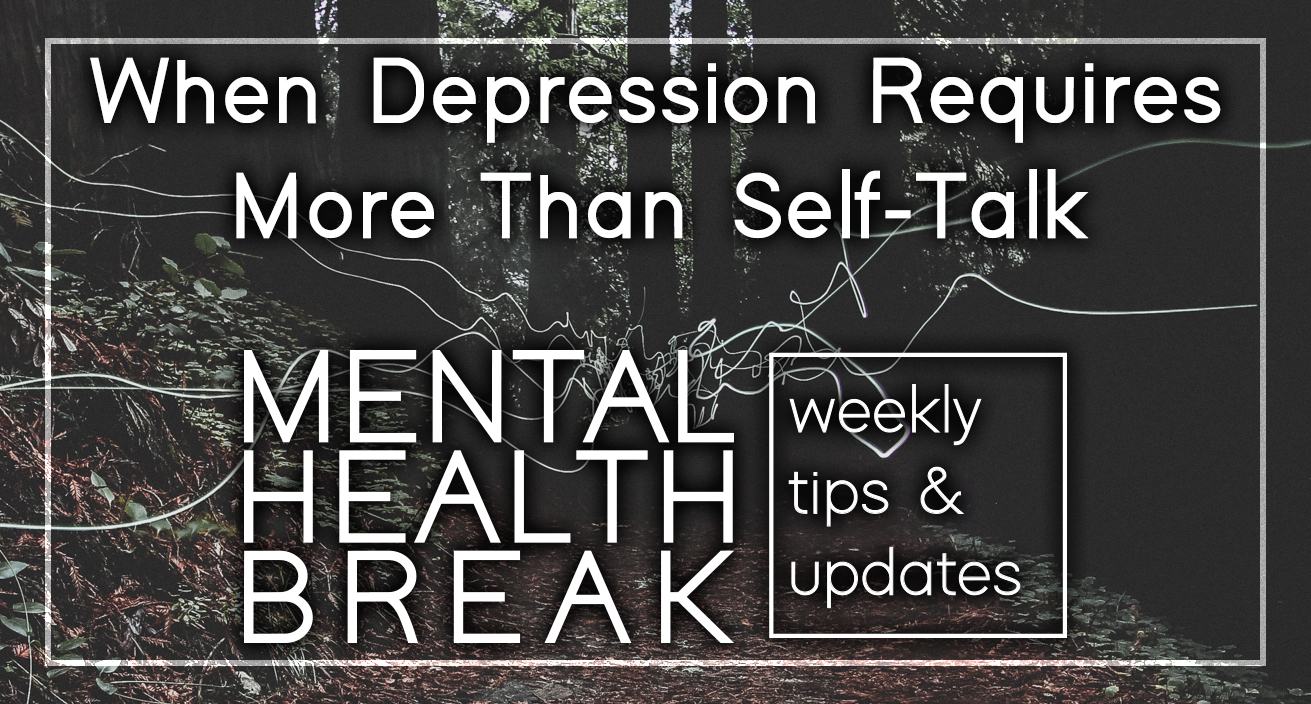It’s common that family members will tell each other things like, “Cheer up, it’s not the worst thing in the world.” Or, “Don’t let it get you down, focus on something else.” And maybe the most common, “Change the way you see it, feeling good is a decision.” While depression can be relieved through cognitive and behavioral therapy (CBT), such as tracing thoughts, feelings and actions, everyone presents with unique needs. Self-harnessing CBT might leave you feeling alone and stuck. The desired result during or after depression is not the absence of depression, it’s the presence of coping, the fullness of life, problem solving through life’s unexpected results and feeling satisfaction, presence of mind and body, hope. Like anything, these are about practice, self-compassion and consistency. Nothing good happens from a routine of self-shaming. Byproducts of feeling left out, helpless or forsaken are not motivation, stamina, courage and self-worth.
Too often, depression can be written off to thought stopping or more upbeat self-talk, but everyone needs mental healthcare at some point. More than what they can muster from beneath their bootstraps or willpower. A combination of integrative psychiatry (upgraded conventional medicine improved by functional holistic medicine), counseling or therapy and social outlets to safely practice new skills and air questions and concerns pair well with self-affirmation or personal development like thought stopping. At Solstice Pacific, we combine old fashioned, time-tested modalities with mindfulness, gut health and cutting edge brain treatment. Depression is more than clouds blocking sunshine, it is a serious condition that requires mercy, education and teamwork. As your body heals, so too the way you see yourself. Brain and body are intricate connected. But, the way you talk to yourself can be an easier and more natural decision as neurotransmitters, environment and professional care support mood.
One Step To Treat Depression is Stress Relief

Step outside, notice where your feet are. How do they feel on the ground?
How does it feel to stand still? Pause longer, what feelings are present? Identify two of them before moving on with your day. Being a witness for yourself is one way to ground.
What is grounding? A technique that helps regulate mood, emotion, inflammation, immune response or autoimmune conditions. Grounding or earthing is a practice animals and human beings can benefit from by creating contact (as direct as possible) with the earth. Feet or hands to the ground is best, but even in a car or plane or office - a practice that delivers! Grounding is proven to reduce pain, stress, pain while increasing wound healing or in the abstract, creativity and relaxation.







